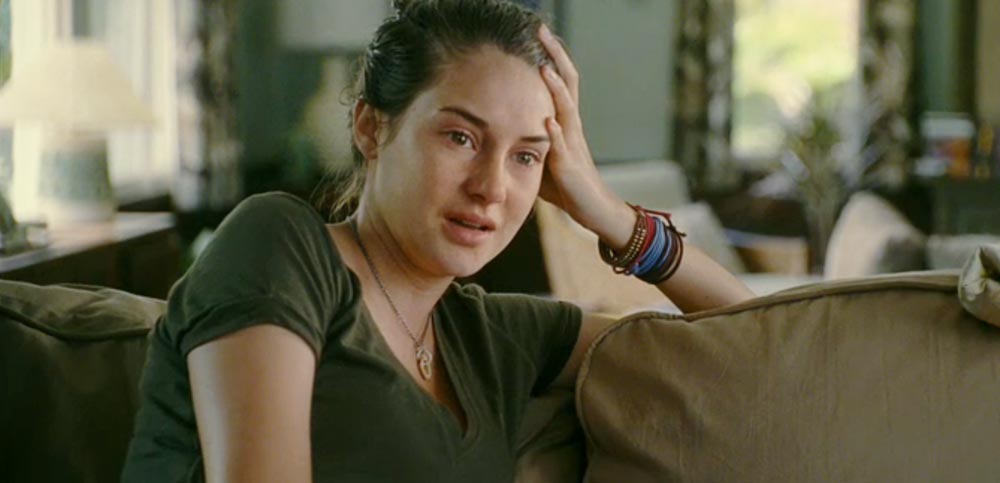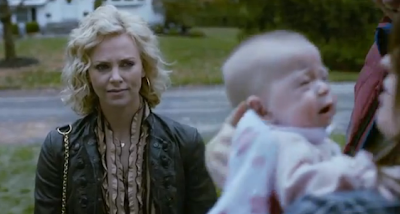 |
| This basically sums it up. |
Don’t get me wrong, Steve Carell is one of the funniest, most likable actors working today. But with his past few features, and his latest, “Seeking a Friend for the End of the World,” he has a created a new film archetype: The Sad Insurance Salesman.
The Sad Insurance Salesman is a male in mid-life crisis. His wife will have cheated and then walked out on him because their marriage has lost all sense of excitement. Basically, the Sad Insurance Salesman might as well say, “I’m really nice, but I’m also boring.”
This, in a way, can also define “Seeking a Friend for the End of the World.” It is nice at parts but in the end, it is unsatisfying and lacks chemistry.
“Seeking a Friend for the End of the World” begins at the end. Well, the end of the world, that is. An asteroid is hurdling towards Earth, and death is inevitable. Dodge (Steve Carell), a timid insurance salesman who doesn’t take a lot of risks, is abandoned by his wife (Nancy Carell, Carell’s real life wife), who doesn’t want to spent her last days on Earth with him. Her exit is marked with The Beach Boys’ “Wouldn’t it Be Nice” playing over the radio. No matter how many times that song is used ironically over a dark scene in a movie, it never gets old.
Dodge still shows up to work everyday, despite the fact that most of his co-workers have jumped ship. Here is a man who won’t step out of his comfort zone and enjoy life, even as all life on Earth is about to end. Dodge doesn’t want to face the end alone, but he also doesn’t want to be promiscuous, as per the advice of his friends (Rob Corddry and Patton Oswalt, both criminally underused). Instead, he first seeks solace in a dog that has been abandoned by its owner. The dog might have been the highlight of the movie, even if it felt a little like pandering at times. The dog might have been the best part for me for the sole reason that it is a dog. Dodge names the dog Sorry, because it shows his regrets in life, and blah blah blatant symbolism.

One night, Dodge meets another lonely tenant in his apartment building, Penny (Keira Knightley). Penny is deeply unhappy with her relationship to a penniless musician (Adam Brody). She breaks up with him, and her and Dodge find solace in their loneliness. Unlike Dodge, Penny is spontaneous and positive. She also carries around her baggage from the past: a collection of records, without a record player to play it on. Based on Penny’s collection, which includes Leonard Cohen and Lou Reed, writer-director Lorene Scafaria must be a pretty awesome person.
“Seeking a Friend” becomes a road movie with two separate goals: Dodge wants to spend his last days with his childhood sweetheart, and he promises Penny a plane that will take her to England to see her parents. Unfortunately, one goal seems to be completely forgotten and another becomes completely unnecessary.

As Dodge and Penny, Carell and Knightley are not bad, just underwhelming. Carell is one of the most infinitely likable actors around, but I think he does better as the lovable idiot character role that he perfected in varying degress on “The Office” and in “Anchorman.” Knightley, meanwhile, doesn’t quite settle in well to the comedic potential of her character. Her role would have been much better suited to Gillian Jacobs, the “Community” MVP who shines in a minor role as a waitress who lives too close to the edge. She displays all of the zany energy that would have made Penny as impressionable a character as she was meant to be.
For a movie about a meteor hitting Earth, “Seeking a Friend” ends more with a whimper than with a bang. Without giving much away, there is a fade to white, and the only reaction that immediately came to mind was, “that’s it?” Every conflict plays out in an anti-climatic matter, and not the kind of anti-climatic that skewers your expectations for the best. “Seeking a Friend” would have been better suited as a straight up comedy sprinkled with poignant moments. The movie is supposed to be a look at humanity with typical societal constraints removed. People overlook it, but oftentimes comedy is the most truthful way to examine mankind.
Also, it would mean a lot to me if you could check out this review on The Film Stage. I actually give it a letter grade!











